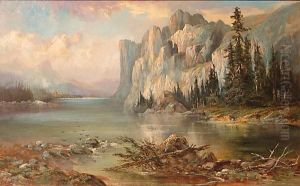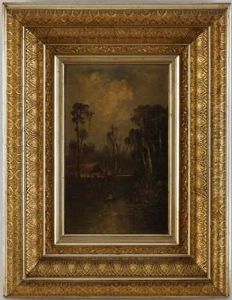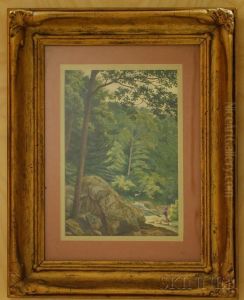Charles Christian Eisele Paintings
Charles Christian Eisele was an American painter, particularly recognized for his landscape paintings. Born on November 17, 1854, in Detroit, Michigan, Eisele developed an early interest in art, which he pursued throughout his life. Despite the paucity of extensive documentation on his life, Eisele is known to have been actively painting during the late 19th and early 20th centuries, a period that saw a transformation in the American art scene with movements such as American Impressionism gaining prominence.
Eisele's work was largely influenced by the natural beauty of the American landscape. He often depicted serene scenes that highlighted the peacefulness of rural America, with a focus on the harmonious interplay of light and color. His paintings often feature bucolic landscapes, with elements such as tranquil rivers, lush forests, and the majestic mountains of the American West. This connection with nature was a common theme among artists of his time, who sought to capture the essence of the American spirit through the country's landscapes.
Although Eisele did not achieve the same level of fame as some of his contemporaries, his works have been appreciated for their quiet beauty and technical skill. His paintings are characterized by a soft, yet detailed approach, which allowed him to accurately convey the atmosphere of his subjects. His choice of palette often leaned towards warm, earthy tones, which added to the feeling of tranquility in his works.
Eisele's death occurred on May 5, 1919, in Pasadena, California. While he did not leave behind a legacy as prominent as some other artists of his era, his work continues to be of interest to collectors and historians who have a passion for American landscape painting. His paintings are a testament to the artistic movements of his time and the ever-enduring allure of the American wilderness.


